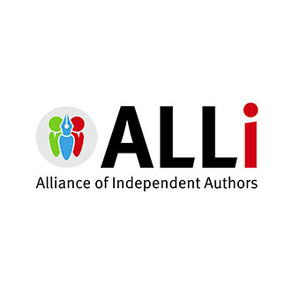Matty Dalrymple, ALLi Campaigns Manager
As the book market becomes ever more global, the idea of offering translations of their work intrigues many authors. Ethan Ellenberg, a New York-based literary agent who works with a number of the Alliance of Independent Authors’s (ALLi’s) top authors—those who are part of ALLi’s Authorpreneur membership and sell twenty-five-thousand-plus books a year or a business equivalent—says that foreign rights can bring in 20 percent to 30 percent of a top author’s income, so translations are well worth planning for as your business grows.
But the considerations differ depending on where you are in your author business. In this article, we explore considerations for beginner authors, emerging authors, and experienced authors.
Beginner authors: Get informed about the international market
For beginner authors, translations should probably not be high on your to-do list. You have enough to do with publishing multiple formats—e-book, print, and audio—in your own language, and all that entails. Even if you have time to explore other options, you may not have the budget, often in the range of $5,000, to commission your own book translations, and not enough book sales (yet!) to interest a foreign publisher.
So should you ignore opportunities in translations? No; use this time to gain an understanding of the translation market and how it is developing. Investigate which indie authors, especially those in your genre, are pursuing translations, in which languages, and how it is working for them. Stay informed so that you can strike when the time is right.
You can tap into ALLi’s complete guide to translations, which includes case studies from authors who have already built translation into their business, on the ALLi blog: https://selfpublishingadvice.org/the-ultimate-guide-to-book-translations-for-indie-authors.
Emerging authors: Assess your goals and your budget
Once you’ve established yourself as a professional author, with your content available in multiple formats in your own language, you might consider whether translations are something you want to pursue and how.
What makes the most sense for your books? Interest in certain languages is sometimes driven by genre; for example, some indie authors have found great success with Historical Romance in German. Also factor in considerations like a book’s setting; a book set in France might lend itself well to a French translation. Finally, keep in mind which languages have the greatest global application, such as Spanish.
Once you have identified target languages, you need to decide whether you want to produce the translation yourself, work with a professional translator, or license translation rights if you have already proven the book does well in English markets. When making this decision, factor in that translating the book itself is not the only work needed. For example, you may need to run ads in that language.
Make a careful assessment of the likely return on investment of pursuing translations, and don’t let “shiny object syndrome” lure you into diving into the translation market without doing your homework first.
Experienced Authors: Build translations into your business plan
For those authors whose businesses are more developed and are enjoying robust book sales, translations are a great way to expand your earnings without having to write another word. For such busy authors, translation rights licensing can be an attractive option. This can enable you to offload much of the work not only of producing the translation but also of all the extra administrative, marketing, and promotion work that translation entails.
It’s far from easy to promote work in a foreign language and unfamiliar territory. Getting local reviews, having a social media presence, optimizing your website for multiple languages, and ensuring you are meeting different cultural expectations and avoiding any taboos are all challenging.
The more experienced you are, the more books you are likely to have as candidates for translations. This opens the possibility of greater payback, but it also increases the complexity not only of managing your portfolio of translations but also of keeping your global audience engaged with you long-term.
Book covers, for example, vary considerably in style by country, which is why you often see books with different covers for US and UK markets. Reference this ALLi guide on global book distribution for more information: https://selfpublishingadvice.org/global-book-distribution-for-indie-authors.
Find out more about rights licensing in ALLi’s guidebook How Authors Sell Publishing Rights, available through ALLi’s online bookshop at https://selfpublishingadvice.org/bookshop.
AI Translation
Authors at all levels need to track changes to the translation landscape carefully, especially with the advent of AI. There has been lots of conversation about how AI might be used by authors and publishers to create translations of their books, but there is also the possibility that AI tools may eliminate the need for authors and publishers to do this work themselves. It’s not difficult to imagine a world where any reader can read a work written in any language in their own language through a generic translation tool. It’s also easy to imagine that, as with audiobooks, AI might provide dramatically more content across languages but that more nuanced human translations will still be desired and might command a premium price.
Track all the opportunities offered by translations with ALLi’s comprehensive guide “The Ultimate Guide to Book Translations for Indie Authors” on the organization’s blog.
Matty Dalrymple, ALLi Campaigns Manager


